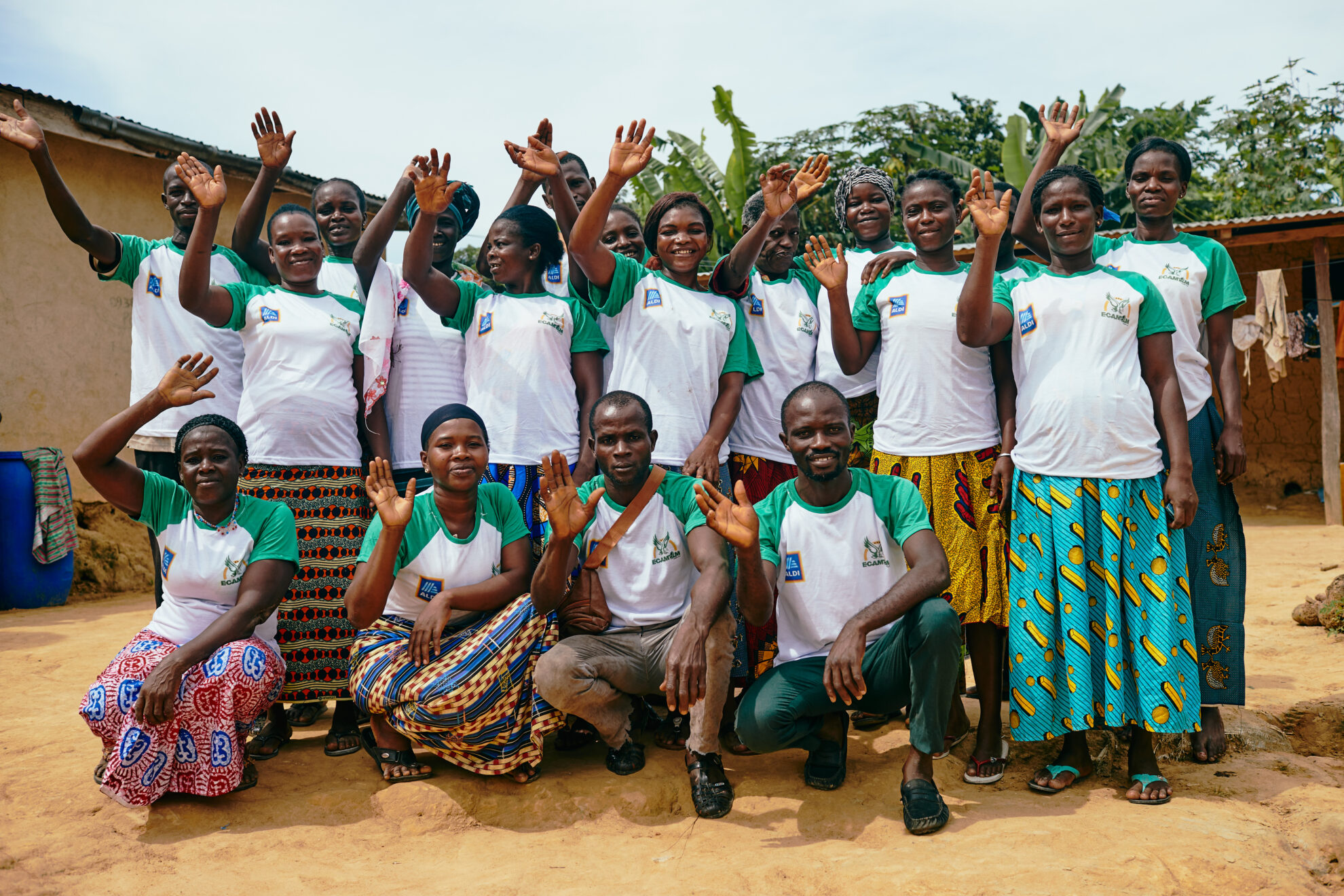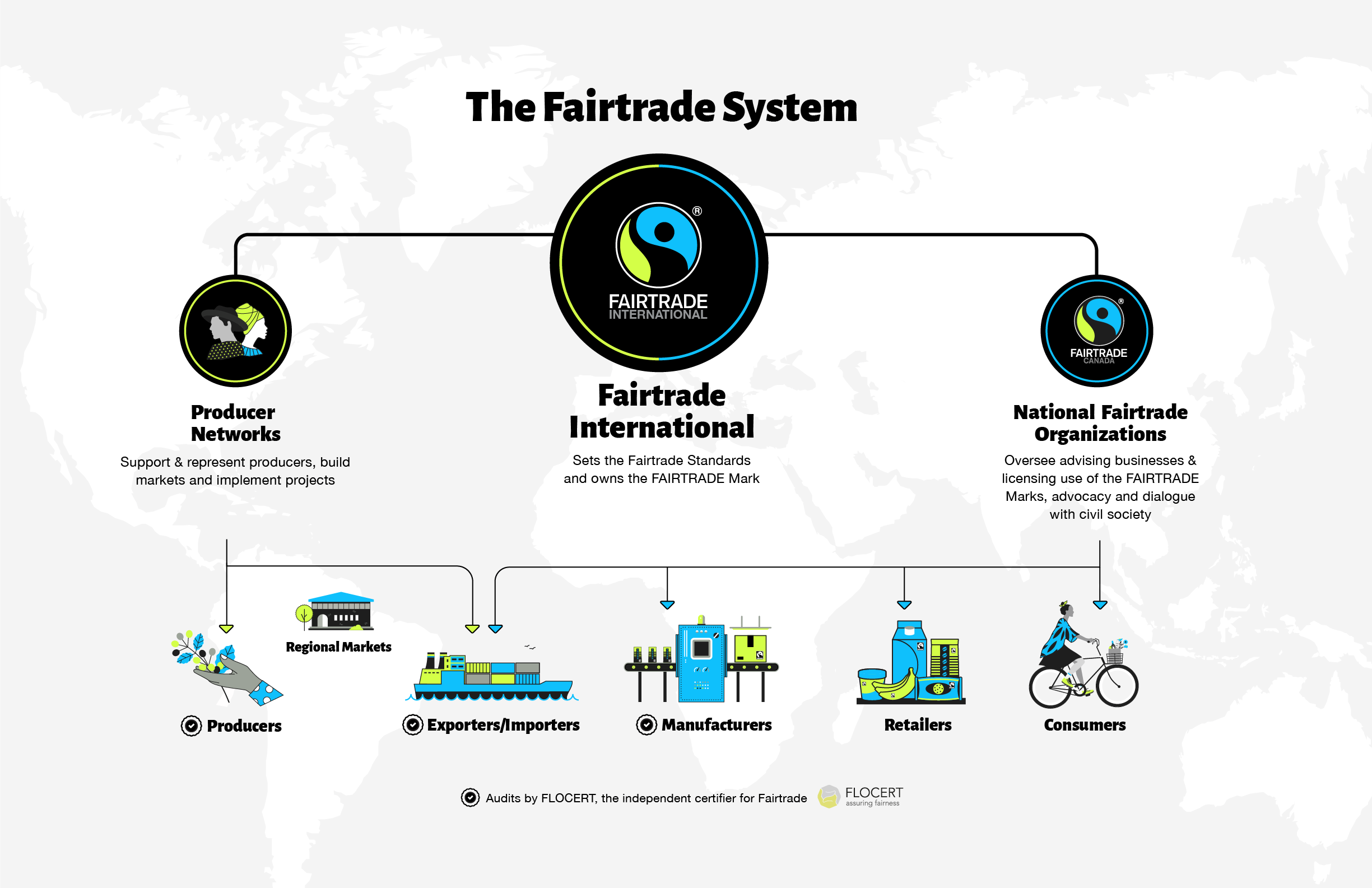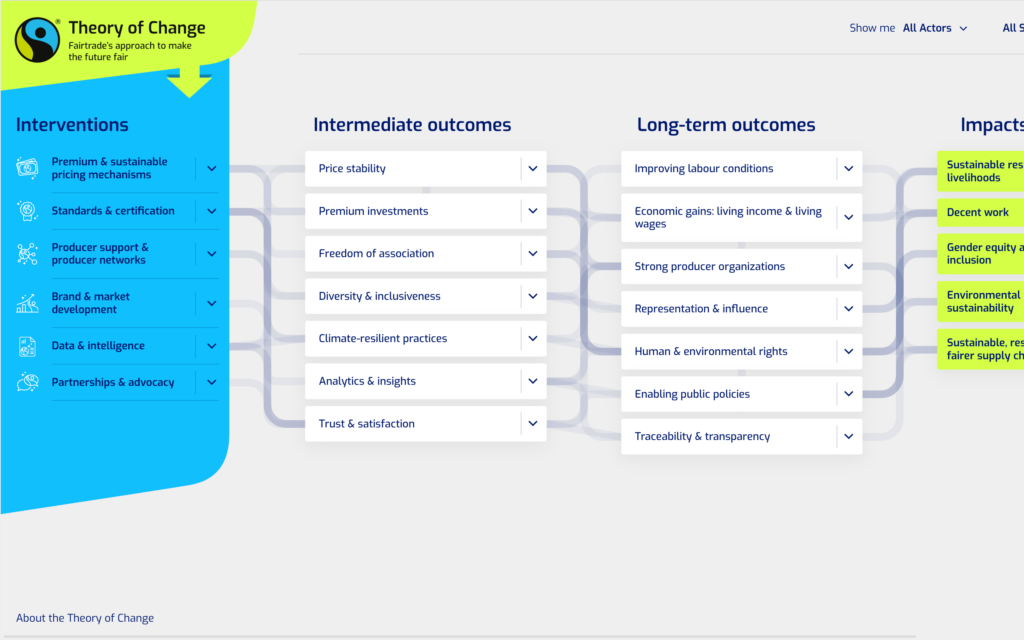
The Fairtrade System
Fairtrade is a global system that connects farmers and workers from countries disadvantaged by unfair global trading structures with consumers and businesses across the world to change trade for the better.
The Fairtrade system includes:
3 regional producer networks, over 25 national Fairtrade organizations and marketing organizations, Fairtrade International, and FLOCERT, the main independent certifier for Fairtrade. Fairtrade International is a non-profit, multi-stakeholder association which brings together all actors in the Fairtrade system to coordinate Fairtrade global strategy. Fairtrade International is responsible for setting the Fairtrade Standards and owns the FAIRTRADE Mark.

Auditors we trust
FLOCERT is the global certification body for Fairtrade. We created and exclusively work with this third-party auditing company because independent unbiased verification is critical for transparency. FLOCERT has deep expertise in a wide variety of products so they are able to not only assess if the Fairtrade Standards are being followed, but they are also able to provide thoughtful feedback on improvements if non-conformities do arise.
Theory of change
Our theory of change maps out what we do and why. It provides the basis to measure the results of our work and progress towards our goals.
In this interactive version, you can explore the pathways of how Fairtrade’s model and activities (on the left) lead to impact for farmers and workers (on the right).

We measure our impact
The Fairtrade system has an ongoing program of Monitoring, Evaluation and Learning (MEL). This is used to improve our understanding of how being part of Fairtrade is benefiting producer organizations and their members, and to generate recommendations and analysis in support of increased effectiveness and impact.
This information, available in Fairtrade International’s library, is used to improve the Fairtrade Standards, producer support, certification, and other Fairtrade activities.